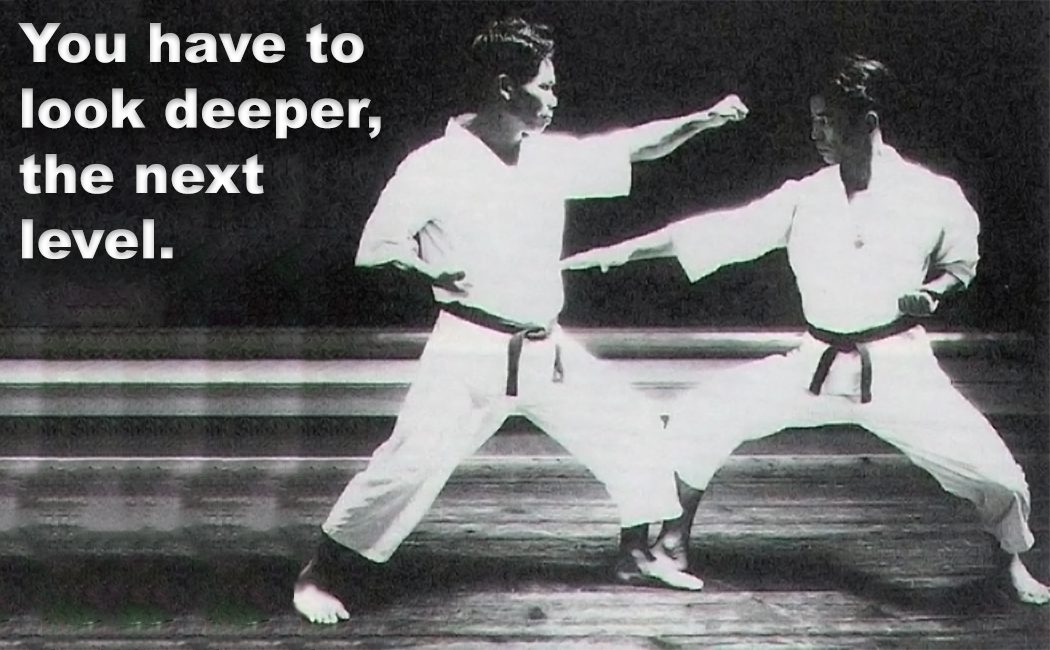
To improve at anything, you must push yourself beyond your comfort zone. When you put sustained effort toward improving, you will grow. This is the logic behind ‘deliberate practice’, a research-backed tool introduced by researcher Anders Ericsson.
His research has shown that HOW you practice matters much more than how MUCH you practice. Real martial arts experts (not just higher ranks) become experts by focusing on improving themselves. Many practitioners focus only on practicing things they can do effortlessly, but this never leads to improvement. Working hard just to work hard will exhaust you. Working hard for the purpose of improving yourself is the secret to expertise.
In the most basic terms, a lifelong learner in the martial arts is someone who keeps acquiring new skills and capabilities well past their black-belt. It involves not only studying new topics but also developing an open-minded, positive attitude. Personal development continues alongside the development of your students.
A lifelong learner looks for opportunities to expand their knowledge and understanding. While qualifications and grades help, curiosity and a growth mindset help to look beyond the techniques that you practice time after time, and create a deeper understanding.
A key character trait you need to be a lifelong learner is humility. It is humility that leads to being open minded, which in turn results in having great listening skills. Every time you listen with an open mind, you will learn something. Learn by listening, asking others for input and advice, constantly being aware of your successes and failures, and re-evaluating your techniques and understanding to see what you can improve. Stop giving yourself an excuse for accepting the status quo, for staying at the same level.
Humility includes the following: respecting others and their opinion; listening more, speaking less; withholding judgment; sharing credit, helping and promoting others.
We probably all could use a dose of humility from time to time, so keep it in mind when dealing with your students and fellow instructors.
We all know someone who acts as though they know everything, they have become an instructor and suddenly they are the master within in their own dojo….. or their own mind. They’ve set up their martial arts school just so they can feed their own ego, and of course, make their students and their followers believe their BS.
They follow a watered down syllabus which contain only basic punches, kicks and ‘blocks’ with the odd kata thrown in, which they have no idea how to use, nothing taught in any depth….. Just move on to the next belt.
Once you have your own school or dojo, it can be easy to get out of practice with learning, concentrating solely on your students. It’s important to learn how to think about things in different ways, to look beyond the syllabus you have hanging on the wall, to question, to stop thinking about passing the next grade and think about the depth of what your are practicing.
The Japanese have a term which refers to looking at something from the surface; “Omote” (表). Therefore “omote” can be seen as simple and direct, “What you see is what you get”. In other words, every technique is taken at face value. This is a simplest way to interpret your techniques, your syllabus, but the downside (that becomes apparent pretty quickly) is that it often relies on unrealistic scenarios. This is why you have to look deeper, the next level, like viewing an iceberg, the largest part is below the surface.
It doesn’t matter what style or system, look for ways to learn everywhere….. there isn’t just one way. The karate belt system and syllabus, is not only set up as a measure of students’ progress….. go deeper, understand WHY something is done, not just HOW it is done. Be a lifelong learner.
